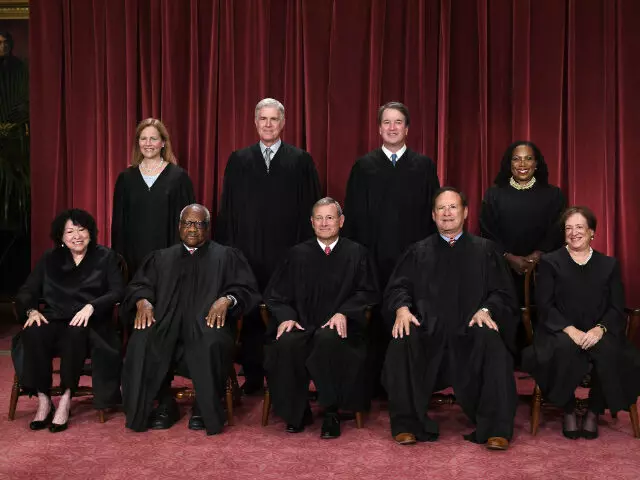In a significant decision, the Supreme Court ruled in a six-to-three opinion against a drug mule’s conviction by claiming that expert testimony from a Homeland Security Investigations (HSI) special agent violated federal evidentiary rules. Delilah Diaz was stopped at a Port of Entry at the United States-Mexico border in 2020, where Border Patrol agents discovered more than 54 pounds of methamphetamine hidden in her vehicle. As a result, she faced charges for importing methamphetamine into the U.S., which required federal prosecutors to prove that Diaz was aware that she was transporting drugs across the border.
During the trial, Diaz maintained that she was unaware of the methamphetamine’s presence in her car. In response, federal prosecutors called upon HSI Special Agent Andrew Flood to testify as an expert witness in the case. He argued that drug traffickers typically do not entrust large amounts of drugs with couriers who are unaware they are transporting such substances.
Diaz argued that Flood’s testimony violated federal evidentiary rules, stating that he was expressing an opinion about her mental state or condition. The court allowed Flood to testify that most couriers in similar cases were aware of the presence of drugs they were transporting. Nonetheless, a jury convicted Diaz, who subsequently appealed the decision on the grounds that Flood’s testimony had violated federal evidentiary rules. The Court of Appeals upheld the conviction.
On Thursday, Justice Clarence Thomas wrote for the majority, finding that Flood’s expert testimony was not an opinion and thus did not violate federal evidentiary rules: “In this case, Agent Flood did not express an opinion about whether Diaz herself knowingly transported methamphetamine. Instead, he testified about the knowledge of most drug couriers.” Thomas argued that this opinion does not necessarily describe Diaz’s mental state and was left to the jury’s judgment.
Diaz’s counterarguments were unpersuasive. She first argued that Agent Flood functionally stated an opinion about whether she knowingly transported drugs when he opined that most couriers know they are transporting drugs. However, an opinion about most couriers is not an opinion about all couriers. Agent Flood asserted that Diaz was part of a group of persons who may or may not have a particular mental state. The ultimate issue of Diaz’s mental state was thus left to the jury’s judgment. Diaz next relied on dictionary definitions of “about” to argue that Rule 704(b)’s phrase “state an opinion about” includes all testimony that “concerns” whether the defendant had a particular state of mind. However, the text’s surrounding context makes clear that Rule 704(b) addresses only conclusions as to the defendant’s mental state.
Rule 704(a) further confirms the narrow scope of testimony prohibited by Rule 704(b. Because Rule 704(b) is an “exception” to Rule 704(a), it can only be understood to cover a subset of the testimony that Rule 704(a) expressly allows, which is opinion testimony that includes ultimate issues. Diaz’s reading would have the exception swallow the rule.
Thomas was joined by Chief Justice John Roberts, as well as Justices Samuel Alito, Brett Kavanaugh, Amy Coney Barrett, and Ketanji Brown Jackson, who filed a concurring opinion. Justice Neil Gorsuch filed a dissenting opinion, joined by Justices Sonia Sotomayor and Elena Kagan. The case is Diaz v. United States, No. 23-14 in the Supreme Court of the United States.

